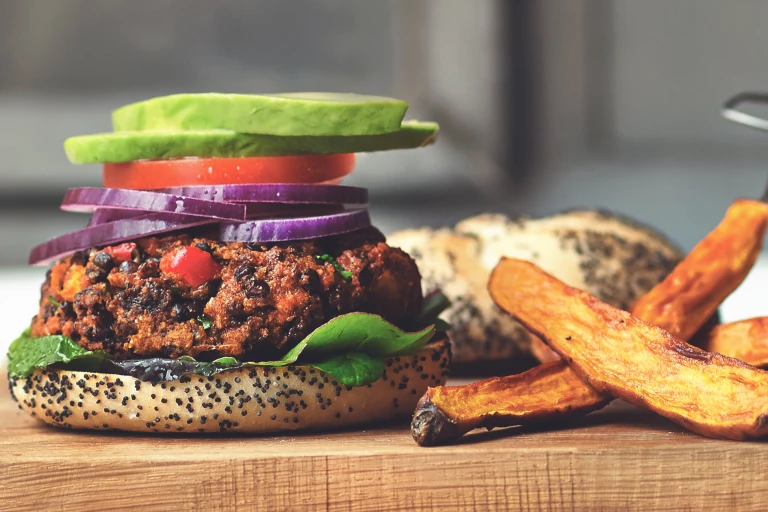
Vegan Burgers & Mince
We have a fantastic range of plant based burgers & mince to choose from, with a taste that really satisfies! Here’s a sneak preview…
Click HERE to see the full range!

THIS Isn’t Chicken SF Tenders
Lightly fried plant-based chicken flavoured tenders made from soya and pea protein, coated in batter and southern fried breadcrumbs.
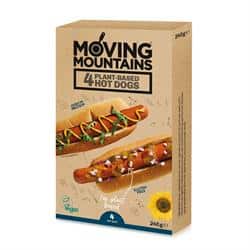
Plant Based Hotdogs
Sunflower seed protein. Beech wood smoked. Zero Cholesterol. Gluten Free. Ideal for flexitarians. Frozen, Gluten Free, Soy Free, Peanut Free and Nut Free.

Chicken Style Burgers
Scrumptious burgers coated in crunchy, golden crumbs. Voted BEST VEGAN “MEAT” PRODUCT at the VegFest Awards 2011 (scooping 34% of public votes!).
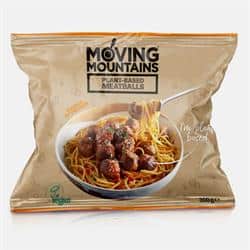
Plant Based Meatballs
Partly cooked, frozen. Approx 18 x 17g (+/- 0.5g) serves 2-3. High protein. Zero Cholesterol. Ideal for flexitarians. Frozen, Peanut Free and Nut Free.
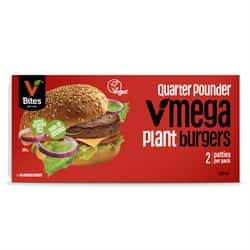
Quarter Pounder Burger
Our VMega Burgers are made from tasty seasoned soya protein they’re delicious and meat-free. Try one – you won’t believe your taste buds!

Beyond Meatballs
Open. Sauté. Sauce. The pre-rolled and seasoned plant-based meatballs are ideal for anything from family dinners and potlucks to game days and lunch sandwiches.

Bonanza Veggie Steaks
Slender cut vegan chicken-style strips made from vegetable protein and authentically seasoned – ideal for wraps, salads, pies, sandwiches, stir-frys and curries.

Gluten & Soy Free Chickn
Soya and Gluten Free A great party platter addition, lunchtime snack, and children’s favourite. These are high protein, low in fat, and soya-free. Spiced with cayenne and flavoured with…

Traditional Veg Burger
Tasty mouth-watering burgers made from chunky vegetable protein and seasoned with authentic spices. Voted BEST FOOD PRODUCT in The Vegan Society Awards 2009.

Beyond Meat Mince
Beyond Beef Mince is a vegan, gluten-free meat replacement that does not include GMOs, soy, or gluten. Gives you the freedom to turn any recipe into a plant-based masterpiece, with exactly the same…

4oz Plant-Based Burgers
The moving mountains® burger needs no introduction. praised by top chefs across the country, our burger is packed with plant protein and irresistible juiciness.

Meat Free Hot Dogs
Fry’s meat-free hot dogs are a classic served up in a bun with ketchup and mustard – or shake it up by adding chopped up hot dogs to pizza or pasta dishes. Fry, boil, steam, or even microwave straight from frozen.

THIS Isn’t Chicken Nuggets
Lightly fried plant-based chicken flavoured nuggets made from soya and pea protein, coated in batter and breadcrumbs. Frozen and Nut Free.
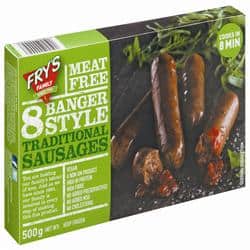
Traditional Veg Sausages
Firm and juicy banger style vegan sausages made from FRY’S tasty chunky vegetable protein and flavoured with classic sausage spices. Frozen, Peanut Free and Nut Free.
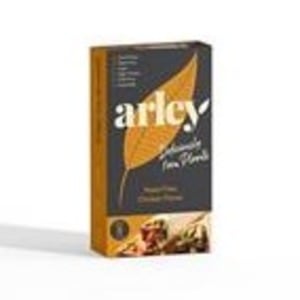
Plant-Based Chicken Pieces
Arley Plant-Based Chicken Pieces are perfect for a healthy take on any of your favourite recipes, from an Oriental Stir-Fry to a vegan Chicken and Mushroom pie.
Vegan burgers and mince
Vegan Burgers: The Rise of Plant-Based Patties in Today’s Cuisine
With the rise of health-conscious eating and ethical dietary choices, vegan burgers have taken the culinary world by storm. These meat-free alternatives offer a plant-based solution for those who wish to enjoy the classic flavours and textures of a burger without consuming real meat.
Vegan burgers are crafted using a variety of ingredients such as legumes, vegetables, grains, and seeds to replicate the satisfying experience of traditional burgers.
The diversity of vegan burger options available caters to a range of tastes and dietary requirements. Each recipe provides a unique blend of nutrients and flavours.
Vegan burgers are not only a healthy choice but also an environmentally friendly option, as they typically require fewer resources to produce than their meat-based counterparts.
For those new to plant-based diets, vegan burgers can be a delicious starting point, offering familiarity within the context of a meatless meal.
Key Takeaways
- Vegan burgers are a popular, plant-based alternative to beef burgers, aligning with health and ethical food choices.
- They incorporate a variety of ingredients to emulate the taste and texture of real meat.
- These burgers are not only beneficial for health but also for the environment due to their sustainable nature.
Understanding Vegan Burgers
Vegan burgers are a culinary innovation catered to those seeking plant-based alternatives to traditional meat burgers. They offer a variety of flavours and nutritional benefits aligning with vegan and vegetarian lifestyles.
What Makes a Burger Vegan
A vegan burger is defined by its exclusion of animal products. Instead, these burgers employ a blend of plant-based ingredients to replicate the texture and taste of a conventional burger.
Common proteins used include tofu, tempeh, seitan, and legumes like lentils or chickpeas. Grains such as quinoa and rice may provide additional texture, while binders like flaxseed serve to hold the patty together. Seasonings and spices are integrated to enrich the flavour profile.
Health Benefits of Vegan Burgers
Vegan burgers not only cater to dietary preferences but also offer distinct health benefits. They are typically high in fibre, vitamins, and minerals whilst being lower in calories and saturated fats compared to their meat-based counterparts.
Plant-based proteins can contribute to a balanced diet, supporting muscle maintenance and overall health.
Comparison with Traditional Burgers
When comparing vegan burgers to traditional meat burgers, there are several differences to consider. Plant-based burgers tend to be lower in cholesterol and saturated fat, making them a heart-healthier option.
In terms of texture, manufacturers strive to match the juiciness and bite of beef, often utilising advanced culinary techniques. However, flavour profiles can vary widely, as vegan burgers can range from tasting remarkably similar to beef to offering entirely unique and diverse plant-based tastes.
Essential Ingredients
The creation of a satisfying vegan burger requires careful consideration of ingredients that ensure flavour, texture, and bite. Selecting the right base components, enhancing flavours, and using effective binding agents are crucial for crafting a delectable plant-based patty.
Base Components
The foundation of any vegan burger is its base, which typically comprises legumes such as beans, lentils, and chickpeas. These ingredients not only provide the bulk and protein content but also the fibrous texture that mimics the chewiness of meat.
Vegetables can add moisture and subtlety; for instance, mushrooms, onions, and beetroot are popular for their umami, sweetness, and earthy flavours. Meanwhile, grains like rice, oats, and quinoa are often incorporated for their binding properties and to offer a hearty bite.
Flavour Enhancers
To elevate the taste profile of a vegan burger, a variety of spices and herbs can be strategically used. Typical choices include garlic, pepper, and tomatoes, which are known for their ability to add depth and complexity to the patty.
Adding flavour components, such as vegan cheese, can introduce richness and a creamy texture. Lastly, salt is essential for highlighting other tastes within the burger mixture.
Binding Agents
A critical challenge in vegan burger preparation is ensuring the patty holds together during cooking. Binding agents serve the purpose of glueing the ingredients.
Common binders include flour, which acts as a dry adhesive, and the starchy content of certain legumes and grains when mashed or cooked.
Usually, a combination of binding agents is needed to prevent the patty from crumbling, with the choice of binder influencing the final texture of the burger.
Textural Considerations
In the realm of vegan burgers, achieving a palatable texture that satisfies the consumer is crucial. Manufacturers focus on mimicking the chewiness and juiciness of traditional meat burgers, often using a range of processing techniques and ingredients to hit the mark.
Achieving the Right Consistency
To attain the ideal consistency in vegan burger patties, it’s essential to consider the base ingredients’ textural properties.
A food processor is often employed to create a fine mixture that holds together yet retains a certain level of moisture. Meanwhile, pulses of various legumes, such as black beans in a black bean burger, are processed until they reach the right texture, balancing between too crumbly and overly mushy.
This mixture usually requires refrigeration, typically in a fridge for a few hours, to firm up before cooking. This helps the patties maintain their shape during the cooking process, whether it’s on a grill, in a frying pan, or within an oven to bake.
Mimicking Meat Texture
High-protein vegan burgers aim to replicate the fibrous and tender texture of meat. Key plant-based ingredients undergo texturisation processes to enhance their meat-like feel.
Through methods such as heating and cooling, extrusion, or the addition of binders like methyl cellulose, they achieve a chewiness reminiscent of ground beef.
The texture profile analysis showed that hybrids combining meat and plant-based ingredients offered a softer and less cohesive texture compared to full beef burgers, drawing those who prefer a tender bite that isn’t too far removed from traditional options.
The Cooking Process
Creating a sumptuous vegan burger involves a series of steps that ensure the final product is delectable and appealing. The art of crafting the perfect burger encompasses careful preparation, choosing the right cooking method, and applying final touches that enhance its flavours.
Preparation Techniques
Before one begins to cook, it’s essential to prepare the ingredients properly. A vegan burger recipe often starts with the base mixture, which can include a variety of beans, grains, and seasonings.
For instance, blending gluten-free oats into flour provides a binding element, while sautéing onions and garlic adds depth to the flavour profile. Flaxseeds, sometimes soaked beforehand, can act as a binding agent to hold the patties together.
Cooking Methods
The method of cooking a vegan burger can vary depending on the recipe and personal preference.
One can bake the patties in an oven preheated to the optimal temperature, usually between 180°C to 200°C, for a uniformly cooked texture.
Alternatively, for those who enjoy char lines and a smoky flavour, grilling is a suitable method.
A well-heated skillet or griddle pan is ideal for those who prefer to sauté, which creates a golden, crispy exterior.
- Preheat your oven or grill before cooking to ensure a consistent heat.
- Grilling should be done over medium heat to avoid burning.
- When using a skillet, ensure it is properly heated and coated with oil to prevent sticking and achieve a toasted finish.
Final Touches
The final touches to a vegan burger can elevate it from good to great. Placing the cooked patties onto a toasted bun adds an extra layer of texture and warmth.
Sautéing toppings like mushrooms or onions in the pan where the patties were cooked can infuse them with the burger’s flavours, making every bite even more delicious.
When constructing the burger, it’s important to balance the textures and flavours, using fresh vegetables, vegan cheeses, and sauces that complement the patty.
Building the Perfect Vegan Burger
Creating the perfect vegan burger is both an art and a science. It’s about striking the right balance of flavours, textures, and nutrition. The following sections break down how to assemble your vegan burger, choose the ideal bun, and complement your creation with the best sauces and condiments.
Assembling the Layers
A truly satisfying vegan burger is crafted thoughtfully with layers that complement each other. Begin with a sturdy base of lettuce, such as Romaine or Iceberg, to provide a crunchy contrast.
A thick sliced tomato adds juiciness and a tangy sweetness. For a creamy element, include a slice of avocado or a generous dollop of guacamole.
Pickles introduce a vinegary bite which can balance out the creamy components. If including vegan cheese, ensure it’s melted over your patty to envelop it with a gooey richness.
Choosing the Right Bun
The bun is more than just a bun! It’s an integral part of the burger that can make or break the experience. Opt for buns that are:
- Soft yet sturdy: Able to withstand the juices and sauces without falling apart.
- Toasted: To add a slight crunch and prevent sogginess.
Whole wheat buns are a healthier option; they add texture and nuttiness to your burger. For a lighter option, consider a lower-calorie bun or even a lettuce wrap to reduce the overall calories.
Sauces and Condiments
Sauces and condiments are the fine details that can elevate a vegan burger from good to great. Use vegan mayo for a classic creamy taste or mix a bit of tomato paste into it for a hint of umami.
Ketchup is a timeless choice, but be mindful of its sugar content. Here are some popular choices to consider:
- Vegan Mayo: Adds creaminess without overpowering the burger.
- Ketchup: A classic for a reason; it offers a sweet and tangy flavour.
- Mustard: Ideal for adding a sharp, tangy component.
Customisation and Variations
Crafting a vegan burger offers a range of possibilities, enabling one to tailor textures and flavours to suit any palate or dietary requirement.
This versatility ensures that every individual can relish (no pun intended!) in a bespoke burger experience.
Speciality Vegan Burgers
One may create Speciality Vegan Burgers that seriously rival their meat counterparts in both taste and satisfaction.
The Vegan Big Mac reinvents the classic with layers of succulent seitan and vegan protein, topped with pickles, lettuce, and special sauce.
For those seeking a rustic touch, a Black Bean Burger with a blend of spices, fresh herbs, and a crunchy walnut crust offers a wholesome bite.
Mushrooms serve as an umami-rich base for burgers, while grated carrot and spinach can add both flavour and a nutritional boost.
Dietary Alternatives
Dietary Alternatives in the vegan burger world cater to those with specific needs without compromising on taste.
A Gluten-Free option might include a hearty Sweet Potato Burger (yuk!) using oat flour as a binder, and rolled oats for texture.
Soy-Free variants can lean on kidney beans or lentils paired with brown rice to form a complete protein, ideal for those avoiding soya products like tofu.
Legumes, in general, are excellent foundations for crafting nutritious and satisfying patties, easily spiced and herbed to elevate the humble vegetable to new culinary heights.
Serving and Presentation
When serving vegan burgers, presentation can significantly enhance the dining experience.
The right plating techniques, choice of accompaniments, and serving suggestions are crucial to delivering a visually appealing and delicious burger.
Plating Techniques
The plant-based patty should be the centrepiece on the plate, suggesting its rightful place as the star of the meal.
For an elegant presentation, one might place the vegan burger on top of a warm, lightly-toasted bun with a glossy touch from a brush of coconut oil or rapeseed oil.
Garnishing with a sprig of coriander can add a dash of colour and hint at the flavours within.
Accompaniments
Alongside the vegan burger, serve a selection of sides that complement its taste and texture.
A small, vibrant salad dressed with lemon or lime juice can offer a refreshing contrast. If preferred, a simple slaw or roasted vegetables from a baking sheet bring warmth and savouriness.
Here’s a suggestion for setting up the plate:
- Top Half of Plate: Vegan burger on bun with garnish
- Bottom Half of Plate: Array of sides
- Zesty salad with lemon dressing
- Roasted veggies with a hint of coconut oil
Serving Suggestions
Always serve vegan burgers hot and fresh off the grill or pan, ensuring the plant-based patty maintains its crispy exterior.
Space permitting, present the burger with condiments on the side, allowing guests to tailor their experience to their personal taste preferences.
For a social dining occasion, consider a “build-your-own” burger bar where diners can select from a variety of toppings and sauces.
Beyond Meat
Beyond Meat is a company that has revolutionised the plant-based food industry with its flagship product, the Beyond Burger.
This burger has been created to cater to those seeking a sustainable and plant-based alternative to traditional meat products.
The production method involves sourcing plant-based ingredients that mimic the properties of meat, namely proteins, fats, minerals, carbohydrates, and water.
The process of making a Beyond Burger involves three key steps.
Initially, the plant-derived elements are collected. Then, through a combination of heating, cooling, and pressure, these proteins undergo transformation.
This process ensures the patties develop the texture and flavour that closely resembles beef burgers.
Customers can enjoy the versatility of cooking these patties at home, experiencing the enjoyment of a hearty burger with a unique twist.
The Beyond Burger is not only about the taste but also boasts a commitment to environmental sustainability.
By opting for plant-based ingredients, it provides a meal option that reduces the ecological footprint compared to traditional cattle farming.
For those with queries or looking for more insights into the Beyond experience—including the full range of ingredients in their patties—Beyond Meat provides comprehensive answers and engaging content.
For committed fans and the plant-curious alike, joining the movement with Beyond Meat means receiving updates, exclusive offers, and a host of plant-based culinary innovations right to your inbox.
Frequently Asked Questions
The rise of veganism has brought vegan burgers into the spotlight, making it essential to address the most common questions regarding this plant-based staple.
What ingredients are commonly used to make a vegan burger patty?
Vegan burgers are crafted from a variety of plant-based ingredients.
One can often find burgers made from legumes such as beans or lentils, grains like quinoa or rice, and an assortment of vegetables. Nuts, seeds, and soy products like tofu or tempeh are also popular bases.
Where can I find vegan burgers in my local area?
Vegan burgers are increasingly available across a range of outlets, from dedicated vegan restaurants to online supermarkets.
What distinguishes a vegan burger from a traditional veggie burger?
The fundamental difference lies in the ingredients.
A vegan burger is formulated without any animal products, while a traditional veggie burger might include non-vegan items such as eggs or cheese as binders or for flavour.
How do I prepare a tasty vegan burger at home?
To create a delicious vegan burger at home, the focus should be on flavour and texture.
Start with a hearty base, season well with herbs and spices, and use effective binders like mashed avocado or wheat germ.
Ensuring the burger is well-cooked to achieve a crispy exterior will elevate the home-made patty.
Which brands offer the best vegan burger options in supermarkets?
Several brands have received high praise for their vegan burger offerings.
Supermarket chains often stock well-reviewed options, including brands such as Beyond Meat, known for their taste and texture that closely resemble traditional meat burgers.
Can vegan burgers be considered a healthier alternative to meat-based burgers?
Vegan burgers can offer a healthier alternative as many are lower in saturated fat and free from cholesterol. However, they can also be high in sodium and processed ingredients.
It’s advisable for consumers to read nutritional labels and choose options with whole foods and minimal additives.
